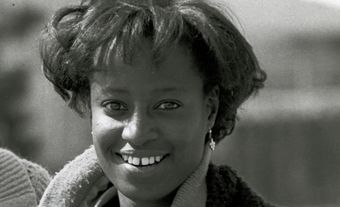
Clement Virgo, director, producer, writer (b at Montego Bay, Jamaica 1 June 1966). Clement Virgo came with his family to Canada in 1977 and attended West Preparatory Public School in north Toronto before the family moved to Regent Park, the city's largest public-housing estate, known for its troubles with drugs and crime. He completed high school at Danforth Technical School, where his interest in men's fashion landed him a job as a window dresser.
Always very strongly visually oriented, film directing was a lifelong dream for Clement Virgo. He applied for and was accepted into the inaugural 1991 Summer Lab program at Norman Jewison's Canadian Film Centre. He returned in 1992 for a nine-month residency, where he made the short film Save My Lost Nigga Soul. It won prizes for best short film at the 1993 Toronto and Chicago international film festivals. It also received a Genie Award nomination for best short and the Paul Robeson Award for best short of the African diaspora at the 1995 Pan African Film and Video Festival. For Clement Virgo, Save My Lost Nigga Soul was the start of a career making innovative films that reflect a balanced approach to Afro-Canadian themes in keeping with mainstream multicultural values.
A year later Virgo completed his first feature, the ambitious Rude, which he wrote and directed. It brought together three separate but overlapping storylines connected by a sultry-voiced underground radio disc jockey known as "Rude," who offers her own brand of benediction. A critical success, it was the first feature shot entirely by black Canadian filmmakers. It was invited to the 1995 Cannes Film Festival, nominated for eight Genie Awards, including best picture and best director, and opened the Perspective Canada program at the Toronto International Film Festival that year. However, when the complex and unresolved film was released commercially it failed to find an audience.

Clement Virgo had more success with his next project, The Planet of Junior Brown (1998), adapted from the novel written by Virginia Hamilton. The made-for-television film, which explored an unlikely teen friendship, was nominated for five Gemini Awards and an Emmy. His second feature was Love Come Down, the tale of two brothers - one black (Larenz Tate), the other white (Martin Cummins) - who share the same mother but have different fathers. In 2001 it was nominated for nine Genie Awards and won three, including best supporting actor for Cummins.
In 2005, Virgo co-wrote, produced and directed Lie with Me (based on the novel by Tamara Faith Ferger), a slight, sexy summer romance and love letter to the city of Toronto. It enjoyed moderate success at the box office. In 2007, his fourth feature, Poor Boy's Game, which was filmed in Halifax, was invited to the Berlin Film Festival. The films of Clement Virgo reflect his immigrant experience without falling into the clichéd trap of violent urban anger.
Clement Virgo's work in directing for television is seen in episodes of Soul Food, The Wire, The L Word, ReGenesis and The Listener, where he also acted as executive producer.

 Share on Facebook
Share on Facebook Share on X
Share on X Share by Email
Share by Email Share on Google Classroom
Share on Google Classroom
